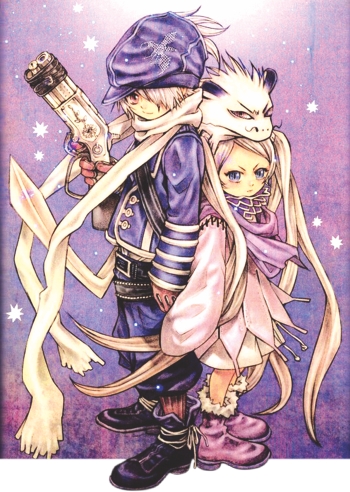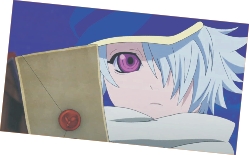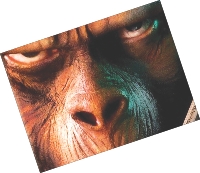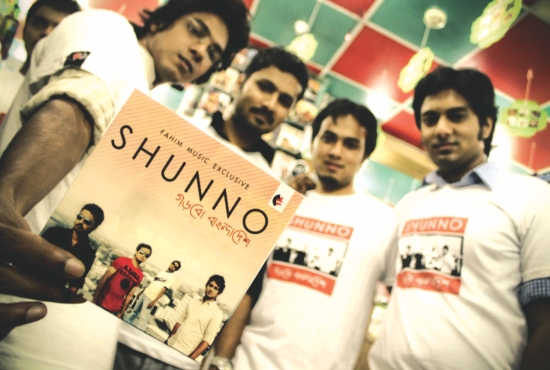ANIME REVIEW Episodes 25

By Professor Spork
Letter Bee
 The story of Letter Bee takes place in Amberground, a world of perpetual night. An artificial sun lights only part of the land, and the dark wilderness is infested with giant insects with metal exoskeletons (Gaichuu) which are attracted to the light in people's hearts, the two factors coming together to make travel extremely dangerous. The Letter Bees are a group of messengers entrusted with keeping the hearts of Amberground connected, as they take on the responsibility of delivering letters and packages to whomever they are addressed despite the threat to their lives presented by the Gaichuu. Apparently abandoned by his mother, Lag Seeing is delivered as a 'letter' to his aunt by Gauche Suede, on his final job before a big promotion. Inspired by Gauche's dedication and kindness through the perilous journey they face together, Lag determines he wants to become a Letter Bee himself. Once he's old enough and passes the preliminaries, he makes the trip to the capital to take the examination which will officially make him a trainee Letter Bee. This is the story of a boy's growth into the man he wishes to become.
The story of Letter Bee takes place in Amberground, a world of perpetual night. An artificial sun lights only part of the land, and the dark wilderness is infested with giant insects with metal exoskeletons (Gaichuu) which are attracted to the light in people's hearts, the two factors coming together to make travel extremely dangerous. The Letter Bees are a group of messengers entrusted with keeping the hearts of Amberground connected, as they take on the responsibility of delivering letters and packages to whomever they are addressed despite the threat to their lives presented by the Gaichuu. Apparently abandoned by his mother, Lag Seeing is delivered as a 'letter' to his aunt by Gauche Suede, on his final job before a big promotion. Inspired by Gauche's dedication and kindness through the perilous journey they face together, Lag determines he wants to become a Letter Bee himself. Once he's old enough and passes the preliminaries, he makes the trip to the capital to take the examination which will officially make him a trainee Letter Bee. This is the story of a boy's growth into the man he wishes to become.
Verdict:
The plot summary didn't cover half of it. Letter Bee is… difficult… to write a review for, since it is rather… strange, and all too straightforward. There's no kid out to save the world, nor is there an evil villain trying to take it over. The story is simple, the characters are simple, yet there are mythical stones which can kill monsters. The first season is overflowing with potential which can only be recognized in the second. It's mostly a build-up to what's coming, and all the promises of greatness can be pretty overwhelming. There is beautiful character development, but nothing too elaborate, mainly focusing on Lag following in his hero's footsteps and meeting different people along the way. Niche, Lag's travelling companion and his 'Dingo', is far too stereotypical in her role as a human (the word 'human' is used very loosely here) weapon, but her innocence adds a refreshing element and brightness to the constant night. Also, she's kind of actually a dragon, so there. Dragons always make things better.
 Although there is little in the plot which hasn't been covered by some other anime already, it's the storytelling in Letter Bee that stands out. The fillers range from terrible to surprisingly good, as they can be either pointless or smartly used to add character depth. The pacing is slow and careful, setting up a believable world to ensnare viewers. Since the anime takes place in a land of uninterrupted night, the primary colours used are blue, purple, black and white, creating a soothing atmosphere. Use of CGI on the Gaichuu is pretty obvious, but even though yours truly isn't particularly fond of 3D effects in an otherwise 2D portal, it can be forgiven due to the remainder of the spectacular animation.
Although there is little in the plot which hasn't been covered by some other anime already, it's the storytelling in Letter Bee that stands out. The fillers range from terrible to surprisingly good, as they can be either pointless or smartly used to add character depth. The pacing is slow and careful, setting up a believable world to ensnare viewers. Since the anime takes place in a land of uninterrupted night, the primary colours used are blue, purple, black and white, creating a soothing atmosphere. Use of CGI on the Gaichuu is pretty obvious, but even though yours truly isn't particularly fond of 3D effects in an otherwise 2D portal, it can be forgiven due to the remainder of the spectacular animation.
Soundtracks to Letter Bee are among the best of those in recent anime. Voice acting is superb and in character. The supporting cast is full of stars and the opening and ending themes are gorgeous. Unfortunately, there is a lack of eye-candy in this series, given that Lag and Niche are both children, but Gauche makes enough appearances through memories and back-story to make up for it.
Overall, Letter Bee gets a B+, namely for inconsistency. Definitely recommended, because despite the rating, there's nothing disappointing about it.

By Bareesh
 Rise of the Planet of the Apes is a very long name for a movie. It's the seventh Planet of the Apes movie and the first one that shows how the apes came to rule the planet in the first place. First things first, this movie is brilliant. You wouldn't expect it, especially when you think it's about monkeys running around, but it is awesome.
Rise of the Planet of the Apes is a very long name for a movie. It's the seventh Planet of the Apes movie and the first one that shows how the apes came to rule the planet in the first place. First things first, this movie is brilliant. You wouldn't expect it, especially when you think it's about monkeys running around, but it is awesome.
The movie starts with poachers capturing chimpanzees. From the get go, you feel sorry for them. Next we see bio-chemist extraordinaire Will Rodman (James Franco) working on a virus that will counter the effect of Alzheimer's in patients. He finds that one of the monkeys turns super-smart after being injected with the virus. Right before the presentation of the find, the monkey in question goes insane and starts a rampage throughout the facility. It is shot down, an act which orphans its only child. James Franco is guilt tripped by the monkey handler to take the orphaned infant ape home where it becomes a companion for Franco's ailing father, Charles (John Lithgow), who names the baby chimp, Caesar. Caesar grows up to be played by Andy Serkis, the king of motion capture characters. And so the chimp grows up with off-the-charts IQ until one day when it attacks their neighbour for pushing and yelling at Charles. Animal services pick him up and place him in a reserve full of other apes where Caesar feels out of place and slowly his resentment towards Franco, for leaving him there, grows. And that's as much that can be said without ruining the entire film.
The script was intelligent and none of the actors disappointed. Franco was good in his role as the determined bio-chemist showing compassion towards the ape; Lithgow was magnificent as the confused Alzheimer's patient. Even Tom Felton came in with a strong performance as the detestable monkey wrangler at the reserve Caesar was placed in. Caesar was the star of the show with Andy Serkis bringing his facial expressions to life. Even Frieda Pinto didn't disappoint as Franco's girlfriend, although she didn't have too many lines in the movie. One of the smart things by the writers is that they understood that this movie doesn't require too much dialogue. After all, the star is an ape. And they made sure that the apes were the exclusive focus and that the humans were secondary.
 Director Rupert Wyatt is pretty new with hardly 3 films (including this) under his belt. This was also his first big budget movie. And he delivered. The chase scenes, the fight scenes, the scenes of upheaval are all choreographed and shot beautifully. There is suspense when suspense is required; there is action when action is required. The soundtrack was a nice accompaniment as well.
Director Rupert Wyatt is pretty new with hardly 3 films (including this) under his belt. This was also his first big budget movie. And he delivered. The chase scenes, the fight scenes, the scenes of upheaval are all choreographed and shot beautifully. There is suspense when suspense is required; there is action when action is required. The soundtrack was a nice accompaniment as well.
The thing that made previous Planet of the Apes movies campy and unattractive was the number of extras running around in monkey suits. It was an eyesore. Thankfully all that has been forgone and it has been replaced with beautiful full motion capture CGI.
So many prequels to so many things have failed so horribly. But through majestic storytelling and wonderful cinematography, Wyatt has created what all summer blockbusters should aspire to be. The film successfully muddles our perception of who to root for in this movie. If there is a sequel to this movie, count me in.
ALBUM REVIEW
Leading from the Front GORBO BANGLADESH
GORBO BANGLADESH
By TheAlien4mEarth
Well, Notun Srot was a huge success and Shoto Asha was even bigger. After regular concerts and performances, the high point came when the title track of the second album was picked as the national cricket team's anthem for the World Cup. Inspired by that success, and still riding on that glory, Shunno has brought us its latest offering - Gorbo Bangladesh. Here's an RS take on their newest album.
Rajahin Rajje- A great track, both lyrically and composition-wise. You're bound to be humming it in your head for at least a few days after.
Gorbo Bangladesh- The title track leaves no disappointments. A strong vocal from Emil and distorted guitar work gives this song its character. Expect this one to be blasted at you full volume at the next Bangladesh match.
Nijhum Raate- This is one of the slower numbers, once again with good lyrical work. It also has a memorable chorus, one that would sound even better when sung live with an acoustic guitar. Perfect for those adda sessions on a chilly winter evening.
Khachar Bhetor Ochin Pakhi- This is in response to all the requests after the live performances. Keeping true to their word, Shunno has made a recorded version of their remixed folk number. At 5:55 minutes, it could do with a lot of shortening. Purists might find the rock feel of the song something to grumble about. Our advice - listen to it for the first minute or so (with just the gentle guitar work in the background), then turn it off when the rest of the music kicks in.
Josnar Pare- Another one of the slower tracks, but with an upbeat feel to it. This one starts off on a high, but kind of fizzles out and gets repetitive as the song goes on. The track had a lot of potential, but just couldn't live up to it.
 The Instrumental- Yup, Shunno's got an instrumental track this time round. For those who are wondering what it would be like- no worries, because it's Shunno, all the way. They've kept to their signature rock sound with distorted guitars and good drumming from Labib. The track has a nice, happy feel to it that would make it appropriate as opening music for any occasion.
The Instrumental- Yup, Shunno's got an instrumental track this time round. For those who are wondering what it would be like- no worries, because it's Shunno, all the way. They've kept to their signature rock sound with distorted guitars and good drumming from Labib. The track has a nice, happy feel to it that would make it appropriate as opening music for any occasion.
Shunno Haate- This one's a disappointment. Even more so because the great Fuad himself had helped out with this song. The chorus is nice enough, but there're only so many times one can bear it. Repetition kills the song, no other way to put it.
Shadhinotar Prantore- Labib debuts as a lyricist in this song, and his words are every bit as good as his drumming. Shadhinotar Prantore has all the makings of a popular concert anthem, with a brilliant chorus that makes for an easy sing-along.
She Bhabe- A touching song, beautifully done. A trumpet piece near the end keeps things interesting. The good work on this track definitely makes up for the shortcomings on Josnar Pare.
With nine tracks, die-hard Shunno fans will want a bit more out of the album. But most will be happy, given that there are definitely no compromises on quality. There's a lot of experimentation in this album, especially regarding vocals. Even then, Shunno has managed to keep its signature rock sound intact. The patriotic theme has worked well, and we can safely predict that youngsters will be pulling covers off this album for quite a while.
